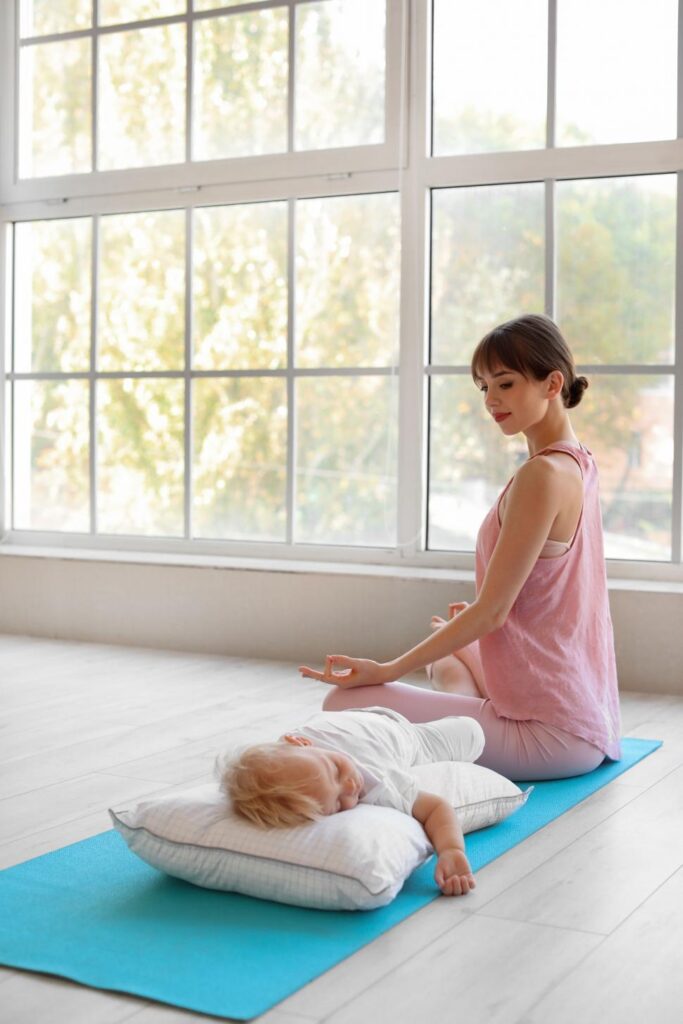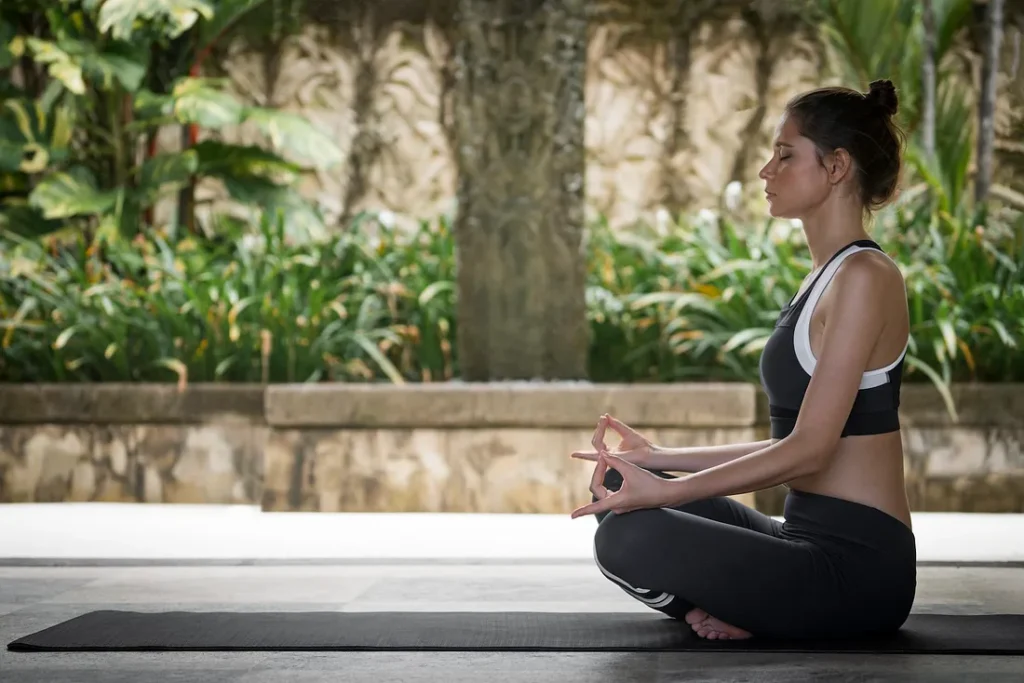How Yoga Builds Emotional Resilience: Reduce Stress, Improve Mood, and Strengthen the Mind

Yoga Builds Emotional Resilience
We all know the feeling: juggling work deadlines, personal commitments, and unexpected challenges can leave us feeling emotionally drained and overwhelmed. Stress and anxiety build up, often affecting our mood and well-being. Yoga offers a powerful remedy, not just for physical health, but for emotional balance as well.
Yoga goes beyond stretching and poses; it’s a holistic practice that connects the mind and body, helping to alleviate stress and foster emotional resilience. Through mindful movement, breath control, and meditation, yoga provides a space to process emotions, release tension, and build inner strength.
This article will explore how consistent yoga practice not only reduces stress and anxiety but also rewires the brain to enhance emotional resilience. By regularly practicing yoga, individuals can learn to manage their emotions more effectively, improve their mood, and navigate life’s challenges with greater ease and balance.
The Science Behind Yoga’s Impact on the Brain
Yoga’s profound emotional benefits are rooted in its ability to affect brain function. Two key areas of the brain influenced by yoga are the amygdala—the brain’s emotional center—and the prefrontal cortex, responsible for decision-making and emotional regulation. The amygdala governs our stress response, triggering feelings of fear and anxiety, while the prefrontal cortex helps us manage emotions and respond thoughtfully to challenges.
Yoga and mindfulness practices help reduce the size and reactivity of the amygdala, while strengthening the prefrontal cortex. This is due to neuroplasticity, the brain’s ability to rewire itself based on new experiences and habits. Consistent yoga practice essentially “reprograms” the brain, reducing the intensity of emotional responses to stress and promoting more balanced, rational thinking.
Scientific studies support these findings. Research shows that yoga lowers cortisol levels—the body’s main stress hormone—which improves emotional balance. A 2018 study published in the journal Frontiers in Human Neuroscience found that long-term yoga practitioners showed less activity in the amygdala and greater emotional regulation, proving that yoga can help rewire the brain for calm and resilience.
Yoga’s Role in Reducing Anxiety and Improving Mood
Yoga works wonders for reducing anxiety and improving mood by activating the parasympathetic nervous system, also known as the “rest and digest” system. This part of the nervous system counters the body’s stress response, bringing calm and relaxation. Through deep, controlled breathing and mindful movement, yoga triggers this response, helping to lower anxiety levels.
Pranayama, the practice of breath control, plays a crucial role in calming the mind. Techniques like Ujjayi breathing (victorious breath) and Nadi Shodhana (alternate nostril breathing) help slow the breath and regulate the heart rate. This encourages the mind to shift away from a state of anxiety and into one of calm, creating an immediate sense of relief.
Numerous studies confirm yoga’s effectiveness in improving mood and reducing anxiety. A study published in the Journal of Psychiatric Practice found that participants who practiced yoga twice a week experienced significant reductions in anxiety and depression symptoms. Another study from the Journal of Behavioral Health showed that just 20 minutes of yoga improved mood, reducing feelings of stress and mental fatigue.
By integrating breath work, movement, and mindfulness, yoga offers a natural and effective way to manage anxiety, promote emotional well-being, and foster a balanced, positive outlook on life.
Emotional Resilience Through Consistent Yoga Practice
Emotional resilience is the ability to bounce back from life’s challenges with strength and adaptability. In a world full of stressors, emotional resilience is crucial for maintaining mental health. Consistent yoga practice helps build this resilience by promoting self-awareness and emotional regulation.
Yoga encourages individuals to become more aware of their emotions and physical sensations. By regularly practicing mindfulness during yoga, you learn to observe your emotions without being overwhelmed by them. This heightened awareness allows for better processing of feelings, helping you navigate life’s ups and downs with greater composure.
Additionally, yoga teaches emotional regulation, allowing practitioners to respond to stress in a more balanced way. For example, when holding a challenging yoga pose, you learn to breathe through discomfort rather than react impulsively. This same skill translates to real-life situations—helping you stay grounded and calm when faced with emotional stress.
Over time, regular yoga practice strengthens emotional resilience. A 2017 study published in the Journal of Clinical Psychology found that individuals who practiced yoga for eight weeks showed improved emotional resilience and were less reactive to stressors. Through yoga, you build the tools needed to manage difficult emotions, remain calm under pressure, and respond thoughtfully to life’s challenges, creating a more balanced and resilient emotional state.
Integrating Yoga into Daily Routines to Manage Emotions
Incorporating yoga into your daily routine doesn’t require hours of practice—even short, consistent sessions can make a significant difference in managing emotions. A simple 10-15 minute practice in the morning or evening can help you stay grounded and emotionally resilient throughout the day.
For mornings, try energizing poses like Mountain Pose and Cat-Cow, paired with Pranayama breathing to set a calm, focused tone for the day. In the evening, wind down with restorative poses like Legs-Up-the-Wall or Reclined Butterfly, which promote relaxation and emotional release after a busy day.
For those with busy schedules, consider breaking up your yoga practice into smaller chunks throughout the day. A few minutes of deep breathing or a short flow of calming poses during lunch can provide emotional reset and clarity.
To help you stay consistent, explore yoga apps such as Daily Yoga or platforms like Yoga with Adriene on YouTube, which offer guided emotional resilience-focused sessions that fit any schedule. Whether you have five minutes or an hour, there’s always a way to integrate yoga into your life to manage emotions more effectively.
Strengthen Your Emotional Resilience with Yoga
Yoga is a powerful practice that not only strengthens the body but also enhances emotional resilience. By incorporating poses and breathing techniques that calm the nervous system and foster emotional regulation, yoga helps you better cope with stress and anxiety. Over time, regular practice leads to increased mental clarity and emotional balance, allowing you to navigate life’s challenges with greater ease.
Start small—whether it’s a 10-minute routine in the morning or a few mindful moments throughout the day. As you integrate yoga into your daily life, you’ll experience its transformative effects on your emotional well-being.
Remember, yoga is a journey of both physical and emotional healing. The benefits go far beyond the mat, positively influencing your mental and emotional resilience for years to come. So, take that first step, practice consistently, and watch your emotional strength grow.


